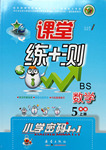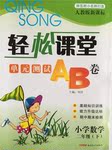
I went to see Professor Johnson, only ______ that he had left the city the night before.
A. to learn B. learn
C. learned D. learning
 课堂练加测系列答案
课堂练加测系列答案 轻松课堂单元测试AB卷系列答案
轻松课堂单元测试AB卷系列答案科目:高中英语 来源:2014-2015学年浙江杭州求是高级中学高一上期中英语试卷(解析版) 题型:单项填空
—How long ____ you ____ in Singapore?
—For just the weekend. I’ll be back next Monday morning.
A. have; stayed B. are; staying
C. did; stay D. do; stay
查看答案和解析>>
科目:高中英语 来源:2014-2015学年江苏宿迁沭阳银河学校高二12月月考英语试卷(解析版) 题型:单项填空
Nowadays, more and more people are addicted _______ shopping on the Net, ______a challenge to traditional department stores.
A. to doing; becoming B. to do; to become
C. doing; having become D. to dong; becomes
查看答案和解析>>
科目:高中英语 来源:2014-2015学年江苏宿迁沭阳银河学校高二12月月考英语试卷(解析版) 题型:单项填空
The noise _______, she couldn’t live here any longer.
A. is too loud to put up
B. is too loud to live with
C. being too loud to put up
D. being too loud to live with
查看答案和解析>>
科目:高中英语 来源:2014-2015学年江苏宿迁剑桥国际学校高二上期中英语试卷(解析版) 题型:阅读理解
Unlike chemists and physicists, who usually do their experiments using machines, biologists and medical researchers have to use living things like rats. But there are three Nobel prize-winning scientists who actually chose to experiment on themselves – all in the name of science, reported The Telegraph.
● Werner Forssmann (Nobel prize winner in 1956)
Forssmann was a German scientist. He studied how to put a pipe inside the heart to measure the pressure inside and decide whether a patient needs surgery (手术).
Experiments had been done on horses before, so he wanted to try with human patients. But it was not permitted because the experiment was considered too dangerous.
Not giving up, Forssmann decided to experiment on himself. He anaesthetized (麻醉) his own arm and made a cut, putting the pipe 30 centimeters into his vein (血管). He then climbed two floors to the X-ray room before pushing the pipe all the way into his heart.
● Barry Marshall (Nobel prize winner in 2005)
Most doctors in the mid-20th century believed that gastritis was down to stress, spicy food or an unusually large amount of stomach acid (胃酸). But in 1979 an Australian scientist named Robin Warren found that the disease might be related to a bacteria (细菌) called Helicobacter pylori. So he teamed up with his colleague, Barry Marshall, to continue the study. When their request to experiment on patients was denied, Marshall bravely drank some of the bacteria. Five days later, he lost his appetite and soon was vomiting (呕吐) each morning – he indeed had gastritis.
● Ralph Steinman (Nobel prize winner in 2011)
This Canadian scientist discovered a new type of immune system cell (免疫细胞) called the dendritic cell. He believed that it had the ability to fight against cancer.
Steinman knew he couldn’t yet use his method to treat patients. So in 2007, when doctors told him that he had cancer and that it was unlikely for him to live longer than a year, he saw an opportunity.
With the help of his colleagues, he gave himself three different vaccines (疫苗) based on his research and a total of eight experimental therapies (疗法). Even though Steinman eventually died from his cancer, he lived four and a half years, much longer than doctors had said he would.
1. The main purpose of the article is to ______.
A. list some famous Nobel prize winners.
B. introduce a few Nobel prize winners who did experiments on themselves.
C. describe some dangerous experiments that Nobel prize-winners did on themselves.
D. list some difficulties that scientists go through to make important discoveries in biology .
2. Which of the following is TRUE according to the article?
A. Forssmann’s experiment ended in failure.
B. Forssmann had the pipe pushed all the way into his heart.
C. Barry Marshall succeeded by drinking some Helicobacter pylori.
D. Barry Marshall was given full responsibility for the study on gastritis at first.
3. The underlined word “gastritis” in Paragraph 5 probably means ______.
A. a kind of stomach disease
B. a kind of immune cell
C. a new type of therapy
D. a type of leg cancer
4.From the text, we can conclude that Ralph Steinman ______.
A. had his request to experiment on patients denied
B. believed that cancer comes from stress and spicy food
C. discovered a new type of cancer cell called the dendritic cell
D. tried different therapies containing the dendritic cell on himself
查看答案和解析>>
科目:高中英语 来源:2014-2015学年江苏宿迁剑桥国际学校高二上期中英语试卷(解析版) 题型:单项填空
She was found sitting in her wheelchair, completely ______ in a fashion magazine her son had just bought.
A. absorbing B. absorbed
C. being absorbed D. to absorb
查看答案和解析>>
科目:高中英语 来源:2014-2015学年江苏宿迁剑桥国际学校高二上期中英语试卷(解析版) 题型:单项填空
—Have you heard of the terrorist attack at Tian’anmen Square in which 5 people were killed and 40 injured?
—Yes, ______ news came as ______ great shock to me.
A. the;a B. the;the
C. a;a D. a;the
查看答案和解析>>
科目:高中英语 来源:2014-2015学年江苏东台三仓中学高二12月月考英语试卷(解析版) 题型:单项填空
There is no doubt _____ Mo Yan, who was awarded the Nobel Prize in Literature last year, has been _____ in writing for decades.
A. that; committed B. whether; committed
C. what; absorbed D. that; absorbed
查看答案和解析>>
科目:高中英语 来源:2014-2015学年广东中山杨仙逸中学高二上第一次段考英语试卷(解析版) 题型:阅读理解
What will man be like in the future——in 5000 or even 50,000 years from now? We can only make guesses, of course, but we can be sure that he will be different from what he is today, for man is slowly changing all the time.
Let us take an obvious example. Man, even five hundred years ago, was shorter than he is today. Now, on average, men are about three inches taller. Five hundred years is relatively short period of time, so we may assume that man will continue to grow taller. Again, in the modern world we use our brains a great deal. Even so, we still make use of only about 20% of the brain’s capacity. As time goes on, however, we shall have to use our brains more and more, and eventually we shall need larger ones! This is likely to bring about a physical change to the head, in particular the forehead, will grow larger.
Nowadays our eyes are in constant use. In fact, we use them so much that very often they become weaker and we have to wear glasses. But over very long period of time it is likely that man’s eyes will grow stronger.
On the other hand, we tend to make less use of our arms and legs. These, as a result, are likely to grow weaker. At the same time, however, our fingers will grow more sensitive because they are used a great deal in modern life.
But what about hair? This will probably disappear from the body altogether in course of time because it does not serve a useful purpose any longer. In the future, then, both sexes are likely to be bald.
Perhaps all this gives the impression that future man will not be a very attractive creature to look at! This may well be true. All the same, in spite of all these changes, future man will still have a lot in common with us. He will still be a human being, with thoughts and emotions similar to our own.
1. The passage mainly tells us that____.
A. man’s life will be different in the future
B. future man will look quite different from us
C. man is growing taller and uglier as time passes
D. the functions of man’s organs(器官) will function as well as today
2. Which of the following serves as the evidence that man is changing?
A. Man’s hair is getting thinner and thinner.
B. Man has got stronger eyes now than he ever had.
C. Man has been growing taller over the past 500 years.
D. Man’s arms and legs have become lighter and weaker.
3. The change in man’s size of forehead is probably because__________
A. he makes use of only 20 % of the brain’s capacity.
B. the other 80% of his brain will grow in due(预定的) time.
C. his brain has grown larger over the past centuries.
D. he will use his brain more and more as time goes on.
4. Which of the following is true about a human being in the future?
A. He thinks and feels in different way.
B. He has smaller eyes and wears better glasses.
C. He is hairless because hair is no longer useful.
D. His fingers grow weaker because he doesn’t use them.
5. It can be inferred from the passage that __________.
A. future life is always predictable(可预测的)
B. human beings hope for a change in the future life
C. human beings will become less attractive in the future
D. Less use of a bodily organ may lead to its degeneration(衰退)
查看答案和解析>>
湖北省互联网违法和不良信息举报平台 | 网上有害信息举报专区 | 电信诈骗举报专区 | 涉历史虚无主义有害信息举报专区 | 涉企侵权举报专区
违法和不良信息举报电话:027-86699610 举报邮箱:58377363@163.com